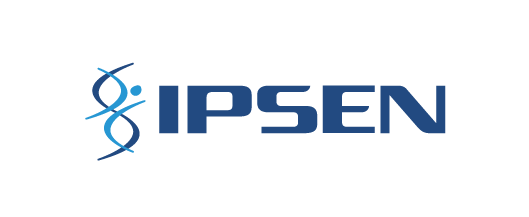At Ipsen, our licensed medicines and R&D cover a range of therapeutic areas. However, all are focused on treating disease and relieving suffering, hoping to bring real value to the healthcare community.
Our primary focus lies in three main areas: oncology (cancers), neurosciences (diseases of the nervous system and the use of therapeutic neurotoxins) and rare diseases.

Oncology
Every two minutes someone in the UK is diagnosed with cancer, with someone in Ireland receiving a cancer diagnosis every 12 minutes.i,ii Ipsen is committed to developing new treatments with the ability to improve and extend lives of those affected.
iCancer Research UK: Cancer Incidence Statistics UK. Accessed December 2024.
iiIrish Cancer Society: Cancer Statistics. Accessed December 2024.
Tackling cancer head-on
Although often talked about generally, ‘cancer’ describes a diverse range of diseases (over 200 different types of cancer exist).i Each type of cancer is typically characterised by the presence of abnormal cells that divide in an uncontrollable way.ii Some cancers can be surgically removed or treated successfully, particularly if they are detected early.iii However, for people with advanced cancers the aim is to help control the spread or manage its symptoms.iv
iCancer Research UK: What is Cancer? Accessed December 2024.
iiCancer Research UK: Cancer Cells. Accessed December 2024.
iiiCancer Research UK: What is Cancer. Accessed December 2024.
ivMacMillan Cancer Support: Advanced Cancer. Accessed December 2024.
Areas we work in within oncology
Ipsen’s work in oncology currently focuses on a number of cancer types, looking at where we can add benefit along every step of the treatment pathway and use targeted therapies to address conditions with high unmet needs.

Neuroscience
At Ipsen we have pioneered research in the area of neuroscience for decades and remain committed to providing patients with innovative therapeutic solutions.
Searching for solutions to debilitating neurological conditions
Neurological conditions are disorders of the brain, spinal cord and/or nerves.i They can be caused by a variety of factors, such as genetic factors, traumatic injuries/accidents, the environment or infections.i However, it is not always possible to tell what the exact cause of the condition.i
Some of these conditions are debilitating and are a leading cause of disability in the UK.ii
iThe Neurological Alliance: Living with a Neurological Condition. Accessed December 2024.
iiBrain Research UK: Neuro Facts. Accessed December 2024.
Areas we work in within neuroscience
A primary focus at Ipsen is progressing the development of new medicines in the treatment of neurological disorders.
Our work in neurology is wide-ranging, with much of our research focused on improving the care of people who experience debilitating movement disorders.

Rare Diseases
In the EU, a disease is considered to be a rare disease when the number of people affected is no more than 1 person in 2,000.i Ipsen is committed to translating scientific progress into clinically meaningful medicines for people suffering from rare conditions.
iEuropean Union: EU Research on Rare Diseases. Accessed December 2024.
Addressing areas of unmet need
Ipsen’s work in rare diseases currently focuses on how we can address areas of high unmet need for people affected by hormone and metabolic imbalances and rare liver disorders. We strive to understand the challenges faced by those living with rare diseases, learning from their experiences and integrating their insights into our efforts throughout the development process.
Areas we work in within rare diseases
Ipsen continues to develop innovative medicines in rare diseases to address conditions with high unmet needs, with specific investment in pituitary pathologies and liver disorders.

Other Therapeutic Areas
Other therapeutic areas we work within
- Endometriosis: affects approximately 1.5 million women in the UKi
- Uterine fibroids: estimated to affect at least 2 in 3 women in their lifetimeii
iRoyal College of Nursing: Endometriosis Fact Sheet. Accessed December 2024.
iiNHS: Fibroids. Accessed December 2024.
ALLSC-GB-000732
December 2024


